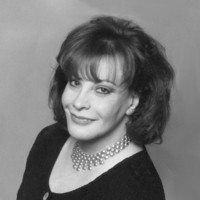Q: A few weeks ago, some characters on "The Young and the Restless" used several words that I had never heard before and did not understand. One was "drak," I believe, in a scene with Ashley and Simon. And Adam called Billy something that sounded like "mesh." Were these secret words or slang? — Thomas, Little Rock, Arkansas
A: Sort of. They were using Yiddish words. The first word is "dreck," which means trash or excrement. The second is "mensch," which means a super-good person.
Yiddish is a mongrel language combining Hebrew, German, Polish and many other European languages. It was invented as a secret code. When Jews were tossed out of a country — they always were — they fled to lands with different languages. Jews wanted a universal language so that wherever a Jew went he could communicate with other Jews. Yiddish, which was a major part of Jewish life, is rarely used in the United States these days, but some parts of Canada continue to converse, read and write in Yiddish.
Often when modern Jews are in a foreign country they want to know if someone they have met is Jewish. I have felt that way. In 1976 I was traveling in Europe when Palestinian hijackers took Israeli and Jewish passengers hostage at an airport in Entebbe. The hijackers wanted Israel to give them $5 million and release dozens of prisoners in exchange for the plane and the hostages. Israel has a policy of not making deals with terrorists.
Hours after the kidnapping, a group of Israeli solders stormed the airport. Among the rescuers was Yonatan Netanyahu, the older brother of current Israeli Prime Minister Benjamin Netanyahu. Yonatan was killed during the raid. Many say it was that event that turned Benjamin into a hard-liner.
I wanted to know what was going on with the incident. So I did what most Jews do: Every time I saw someone, I would stop to talk. I would slip in Yiddish words and most people stared blankly, until finally someone understood. They filled me in on what was happening with the horror.
I only know about 10 Yiddish words. When I was kid, my parents loved the comedian Myron Cohen. He would tell the setup to a joke in English and the punchline in Yiddish. When I asked what the words meant, my parents would say it was hard to translate — that it meant something like, "A guy in a booth sat on a hat with a chicken." Huh?'
At an early age I learned the phrase "Shush, the kinder will hear." This meant my parents were about to talk about us kids. It was time to eavesdrop.
When I was going for my master's degree I had to take linguistics. I chose Yiddish as the topic for my term paper. My professor was so thrilled. No one had ever done that before. Before even reading it, he said he wanted to present the paper at a conference with him in Washington, D.C. I told myself, "Wait till he reads it. He will want to present it to the trashcan." It didn't end up going to a Washington conference, but it didn't end up in the trashcan, either. But it got a passing grade in his grade book.
There are many Yiddish words that the general public uses a lot; they just don't know they are Yiddish. I am going to give you a few and offer Myron Cohen translations.
"Klutz": a block of wood. "Oy vey": Woe is me. "Schmuck": self-made fool. "Glitch": nosedive. "Goy": someone who puts mayo on his corned beef sandwich.
"Yenta": me, a person who is a professional gossip.
To find out more about Lynda Hirsch and read features by other Creators Syndicate writers and cartoonists, visit the Creators Syndicate web page at www.creators.com.






View Comments